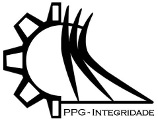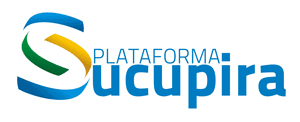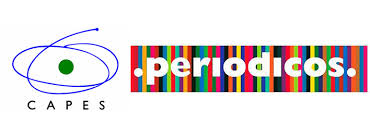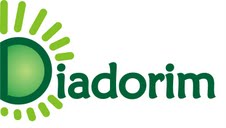Declaração sobre Ética e más práticas de publicação
This statement is based on the guidelines and standards developed by the Committee on Publication Ethics (COPE). To publish a manuscript in the Revista Interdisiciplinar de Pesquisa em Engenharia (RIPE) it is necessary to agree upon standards of expected ethical behavior by all parties involved in the act of publishing: the authors, the journal editors, and the peer reviewers. This statement is based on COPE’s Best Practice Guidelines for Journal Editors.
1. Editor and Editorial Team
The Editorial Team can be consulted at:
https://periodicos.unb.br/index.php/ripe/about/editorialTeam
2. Authors and author's responsabilities
There are no fees or charges required for manuscript processing and/or publishing materials in the journal. Authors are obliged to participate in the peer review process; all authors must have significantly contributed to the article; the author(s) are obliged to provide retractions and/or clearly marked corrections of mistakes during the review process; and authors should provide a list of references, and any financial support; and it is forbidden to publish the same research in more than one journal.
3. Peer Review Process
Revision and approval of contributions will be done in pairs. The articles' evaluation process is documented in the RIPE journal archives. Submitted texts are sent to the Scientific Commission and to ad hoc evaluators by the Editorial Commission. Texts are evaluated with a blind-review process, according to the following criteria: first, they must fit in with the editorial aims of the Journal; second, texts should follow the proposed editorial guidelines; and, finally, the quality of the manuscript will be evaluated, in relation to the originality and relevance of the themes which are presented in the text as well as the critical and/or informative impact that the submission might have on the advance of studies on the origins of western thought.
4. Publication ethics
This statement is based on the guidelines and standards developed by the Committee on Publication Ethics (COPE). To publish a manuscript in the Revista Interdisciplinar de Pesquisa em Engenharia (RIPE) it is necessary to agree upon standards of expected ethical behavior by all parties involved in the act of publishing: the authors, the journal editors, and the peer reviewers. This statement is based on COPE’s Best Practice Guidelines for Journal Editors.
4.1. Duties of the Editors
- Decisions about Publication: The editors-in-chief of RIPE are responsible for deciding which texts submitted to the journal are to be published. The editors may be guided by the policies of the journal's Editorial Board and are constrained by such legal requirements regarding libel, copyright infringement and plagiarism. The editors may confer with other editors or with reviewers in making this decision.
- Fair play: An editor evaluates manuscripts for their intellectual content, without regard to race, gender, sexual orientation, religious beliefs, ethnic origins, citizenship, or political philosophy of the authors.
- Confidentiality: The editors and any editorial staff must not disclose any information about a submitted manuscript to anyone other than the corresponding author, the reviewers, the potential reviewers, and other editorial advisers, as appropriate.
- Disclosure and conflicts of interest: Unpublished materials disclosed in a submitted manuscript must not be used by the editors’ in their own research without the express written consent of the author.
4.2. Duties of Peer Reviewers or Referees
- Contribution to Editorial Decisions: Peer reviewers assist the editors in making editorial decisions, by means of editorial communications with the editors and the author. They may also assist the author in improving the manuscript.
- Promptness: Any selected referee who feels unqualified to review the research reported in a manuscript or knows that its prompt review will be impossible should immediately notify the editors and excuse himself from the review process.
- Confidentiality: Any manuscripts received for review must be treated by reviewers as confidential documents. They must not be shown to or discussed with others except as authorized by the editors.
- Standards of Objectivity: Reviews should be conducted and written objectively. Personal criticism of the author is inappropriate. Referees should express their views clearly, using supporting arguments.
- Acknowledgement of Sources: Reviewers should identify relevant published work that has not been cited by the authors. Any statement that an observation, derivation, or argument has been previously reported should be accompanied by the relevant citation. Reviewers should also call to the editors’ attention any substantial similarity or overlap between the manuscript under consideration and any other published paper of which they have personal knowledge.
- Disclosure and Conflict of Interest: Privileged information or ideas obtained through peer review must be kept confidential and must not used for personal advantage. Reviewers should not consider manuscripts in which they have conflicts of interest resulting from competitive, collaborative, or other relationships or connections with any of the authors, companies, or institutions connected to the papers.
4.3. Duties of Authors
- Reporting standards: Authors of reports of original research should present an accurate account of the work performed as well as an objective discussion of its significance. Underlying data should be represented accurately in the paper. A paper should contain sufficient detail and references to permit others to replicate the work. Fraudulent or knowingly inaccurate statements constitute unethical behavior and are unacceptable.
- Data Access and Retention: Authors may be asked to provide the raw data in connection with a paper for the purpose of editorial review, and should be prepared to provide public access to such data (consistent with the Association of Learned and Professional Society Publishers and The International Association of Scientific, Technical, & Medical Publishers Joint Statement on Data and Databases), if practicable, and should in any event be prepared to retain such data for a reasonable time after publication.
- Originality and Plagiarism: The authors should ensure that they have written entirely original works; if the authors have used the work and/or words of others, they should ensure that this has been appropriately cited or quoted.
- Multiple, Redundant or Concurrent Publication: An author should not publish manuscripts describing essentially the same research in more than one journal or primary publication. Additionally, submitting the same manuscript to more than one journal concurrently constitutes unethical publishing behavior and is unacceptable.
- Acknowledgement of Sources: Proper acknowledgment of the work of others must always be given. Authors should cite all publications that have been influential in determining the nature and the results of the reported work.
- Authorship of the Paper: Authorship should be limited to those who have made a significant contribution to the conception, design, execution, or interpretation of the reported study. All those who have made significant contributions should be listed as co-authors. If there are others who have participated in certain substantive aspects of the research project, they should be acknowledged or listed only as contributors. The corresponding author should ensure that all appropriate co-authors and no inappropriate co-authors are included on the paper, and that all co-authors have seen and approved the final version of the paper and have agreed to its submission for publication. At submission, all co-authors’ email addresses should be provided. Once accepted by the Editorial Board, RIPE will send a copy of its Publication Ethics and Publication Malpractice Statement to all co-authors, for which individual agreements are expected as a requirement for the beginning of the review process. After this point, all communication will be made only with the corresponding author.
- Hazards and Human or Animal Subjects: If the work involves chemicals, procedures or equipment that present any unusual hazards to humans or animals in their use, the author must clearly identify them in the manuscript.
- Disclosure and Conflicts of Interest: All authors should disclose in their manuscript any financial, professional or other substantive conflict of interest that might be construed to influence the results or interpretation of their manuscript. Also, all sources of financial support for the project should be disclosed.
- Fundamental errors in published works: When an author discovers a significant error or inaccuracy in his/her own published work, it is the author’s obligation to promptly notify the journal editors and cooperate with them to retract or correct the paper.
5. Copyright and Access
Given the public access policy of the journal, the use of the published texts is free, with the obligation of recognizing the original authorship and the first publication in this journal. The authors of the published contributions are entirely and exclusively responsible for their contents.
- The authors authorize the publication of the article in this journal.
- The authors guarantee that the contribution is original, and take full responsibility for its content in case of impugnation by third parties.
- The authors guarantee that the contribution is not under evaluation in another journal.
- The authors keep the copyright and convey to the journal the right of first publication, the work being licensed under a Creative Commons Attribution License-BY.
- The authors are allowed and stimulated to publicize and distribute their work on-line after the publication in the journal.
- The authors of the approved works authorize the journal to distribute their content, after publication, for reproduction in content indexes, virtual libraries and similars.
- The editors reserve the right to make adjustments to the text and to adequate the article to the editorial rules of the journal.
Open Access Statement
RIPE is a fully open access journal, which means that all articles are available on the internet to all users immediately upon publication. Non-commercial and commercial use and distribution in any medium is permitted, provided the author and the journal are properly credited. Authors retain copyright the copyright and publication rights of their articles without restriction.
6. Archiving
The issues of RIPE are digitally preserved by the LOKSS System of Cariniana Network - Ministry of Science, Technology, Innovation and Communications (Brazil).
7. Ownership and management
RIPE is owned by ‘Programa de Pós-Graduação em integridade de Materiais da Engenharia’ (http://www.pgintegridade.unb.br). The journal is managed by a dedicated team of staff under the guidance of the editorial and advisory board. For more information about the editorial board, please visit Editorial Team | Revista Interdisciplinar de Pesquisa em Engenharia (unb.br)
8. Web Site
The web Site is available at https://periodicos.unb.br/index.php/ripe
9. Publishing Schedule
RIPE publishes two issues per year.
10. Journal Identity
Revista Interdisciplinar de Pesquisa em Engenharia
Journal Abreviation: RIPE
ISBN 2447-6102









